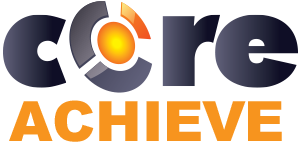The Need for Certification with Nonprofits
December, 30 2022
Other posts:
Enhancing Team Dynamics for Effective Group Decision-Making with LMS Integration
Organizations increasingly rely on collaborative efforts to solve complex problems, innovate, and adapt to change, but how do we ensure that collaboration is happening.
Maximizing Small Business Potential with Training Technology
Training technologies can push small businesses ahead of their competitors, but what are the factors that go into choosing the right technology?
Unlocking Employee Potential: The Transformative Benefits of an Interactive Learning Management System (LMS)
Interactive training allows for unlocking employee potential, but how is it done?
Building a Robust Sales Pipeline with Training
Every organization wants a streamlined sales pipeline, but building one requires a series of interlocking activities with one of the most important being training.
Strategies for Adapting In-Person Training to Online Platforms
Online training is one of the most flexible ways of delivering training across organizations, but how do you even begin to adapt in-person training into online?
On average, 80% of a nonprofit's income are from government grants. Consequently, it is of upmost importance that the people of a nonprofit organization know the who, what, and why of the problem.
As a nonprofit organization, the fulfillment of your mission statement is the most important activity you can do. After all, if you’re not doing that, then most of the donor or grant money will shrivel up, leading to a downward spiral. It is vital for representatives of your organization to be well versed in everything about that mission statement.
However, as an organization grows and grows the difficultly of venting representatives will increase rapidly. This effect will only be compounded as training gets harder and harder to manually certify each learner. A wide-sweeping system for instructing and verifying that instruction is needed.
Why is certification so important?
Most, if not all, nonprofits survive off their reputation with most of their money coming from government grants. Securing these government grants requires that a nonprofit both identify a problem and plan how to solve it. While certification does not impact the former, it is a necessary part of the latter.
For example, if your organization focuses on uplifting communities through volunteer service, your teams will gain credibility in the eyes of the community (and, thus, government) if your leadership goes through a certification program. Part of demonstrating that your organization can solve the problems it claims it can is by having a system for teaching those solvers.
Certifications go beyond just demonstrating that someone knows the “how” of an issue—they can be a symbol of thorough understanding of the “what” and “why.” These two are necessary for the function of advocate groups who often seek to spread messages or bring attention to issues. The need for understanding is furthered by nonprofit organizations typically getting very limited time in the spotlight, which can be easily ruined because the spokesperson does not understand why or how to describe the problem.
Certification is more than proof
Up to this point, we’ve referred to certification only to prove that someone knows something, but it can also be a sorting mechanism. As your organization grows, it’ll be equally more difficult to ensure who knows what and where they should be focusing. Certification allows this sorting and structuring to be much easier while being more effective.
Certification doesn’t have to be difficult
You might be looking at this thinking that you would have to hire someone or create a new system of distributing certifications which would be too costly and time-consuming to be of value. However, with software like CoreAchieve, affords widespread distribution of eLearning and certifications with lost cost (both of time and monetarily).
CoreAchieve specializes in certifications and accreditation, as such, it is an optimal solution for the guarantee of knowledge and proper structuring. All records are kept indefinitely, or certifications can be set to expire, so CoreAchieve goes beyond just labeling what someone has accomplished. Furthermore, CoreAchieve has a free version that does not limit any features, so you can try integrating certifications into your organization without cost.

Leave comment: